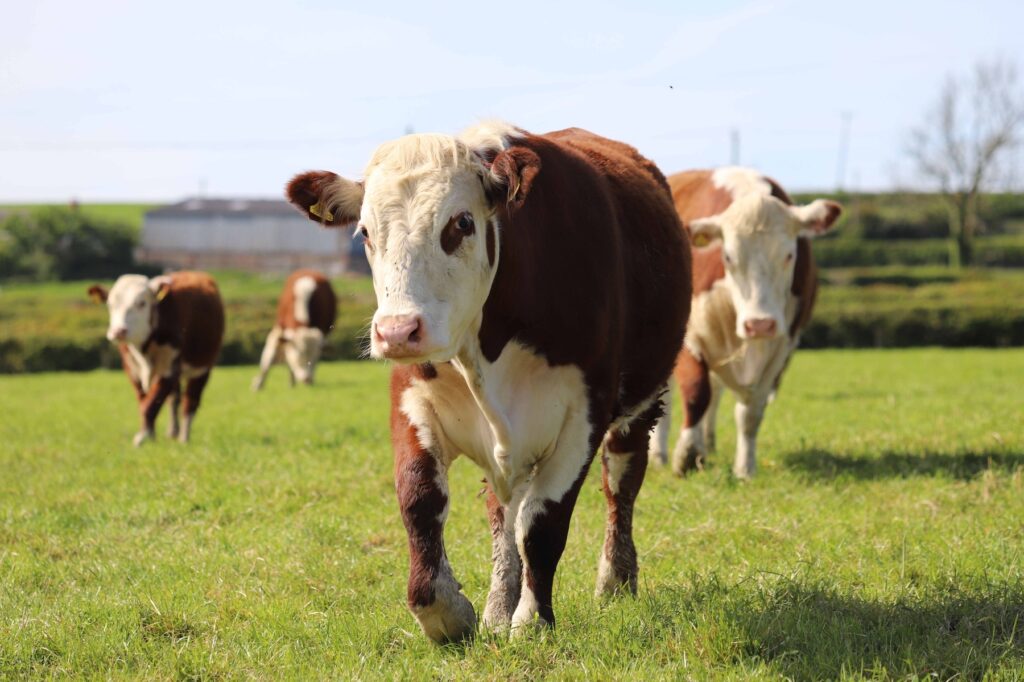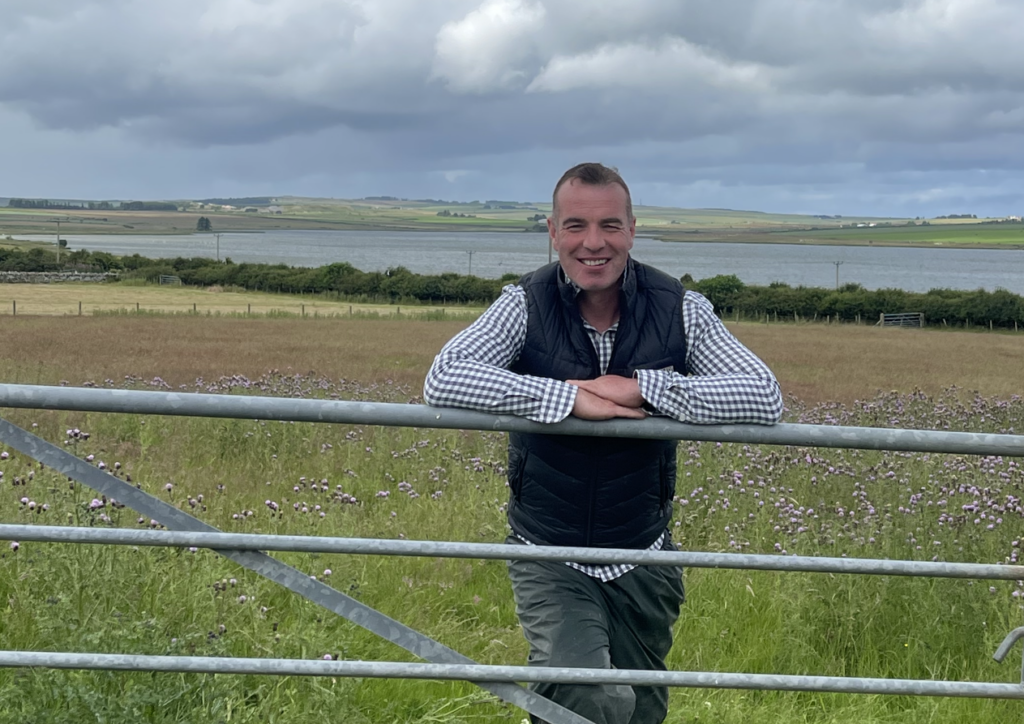Using AI could yield more than £120/cow for beef farmers – study
24th July 2023
Breeding using AI is “vastly underutilised” in the beef herd but can offer significant economic gains, a study has shown.

Stock photo for illustration only.
A Scottish study has revealed the financial gains of using artificial insemination rather than natural service, due to increased pregnancy rates, calf weights and reduced mortality.
The research, by Livestock Health Scotland and Zoetis, included three spring-calving beef herds in Caithness, the Borders and Dumfriesshire.
Over 300 animals were bred between June and late July 2021 by synchronisation and timed AI followed by a sweeper bull, or by using a normal stock bull.
Key findings:
- Conception rate to AI averaged 59% and overall pregnancy rates were superior in the AI group across all three farms, ranging from 94–100% compared to 82–97% in the natural service group
- Assisted calving and calf mortality were higher in the natural service group, with calf mortality from birth to weaning ranging from 5-10%, with only one herd reporting mortality in the AI group at 2%
- On average, 78% of cows calved in the first three weeks when bred to AI, compared to only 44% in the control groups
- Calves born to AI groups were, on average, 24.5kg heavier than calves born to the control groups.
Based on 100 cows mated, the extra weaned weight/calf of +24.5kgs could result in a £6,000 advantage over calves born to cows mated by natural service.
Zoetis veterinary consultant Colin Penny said AI allows you to breed using superior genetics, plus animals born earlier are finishing quicker due to their genetics and extra days’ growth.
“We’ve also seen higher pregnancy rates and lower mortality in the AI group, resulting in 14 more weaned calves per 100 cows mated across the three herds. When calculating all the costs of AI and also removing the need for one extra stock bull plus the benefits from AI, we estimated the ROI to be £122 per cow bred,” he added.

Donald Henderson, of Dunn Farm in Wick, Caithness, was involved in the study.
Caithness farm reaps the rewards
Donald Henderson, of Dunn Farm in Wick, Caithness, had previously AI’d some of his heifers using an easy calving bull and to tighten the calving block.
Involvement in the trial further emphasised the benefits. Mr Henderson continues to use it to maintain a tight calving period in his heifers and across 60-70 of his best cows in his 230-cow Simmental, Saler and Aberdeen cross suckler herd.
He said: “We had similar results this year to last year, and you only need to save one or two calves from dying for it to pay for itself.
“In the study, our calves weaned 30kgs heavier than those to natural service due to the extra growth and superior genetics. We are calving outside, and having batches of cows and calves means we can manage grass better.
“Breeding in this way means we also have uniform batches of bulls and fat cattle, which we can sell off the farm at a year old. Because they are in batches of a similar age, there are also fewer health problems as you are not mixing calves of different ages.
“The fact we are selecting superior genetics and producing more milky cows is certainly aiding growth rates.
“It’s also peace of mind when you AI, as we know about 60% of the animals will be in calf immediately with one shot of semen.”
However, Mr Henderson says good handling facilities are necessary for anyone taking this route. “There’s more to using CIDRs and AI’ing than sticking a bull in the field. We have self-locking yokes in four fields around the shed, meaning we can AI quite easily and keep cows as stress-free as possible post-insemination, which is a must,” he added.
Mr Henderson also says condensing the calving period to a six-week block means he can organise labour more effectively. “It gives you more of a work-life balanced as before we would start calving in March and end in July, and now we are pretty much done in six weeks,” he added.
